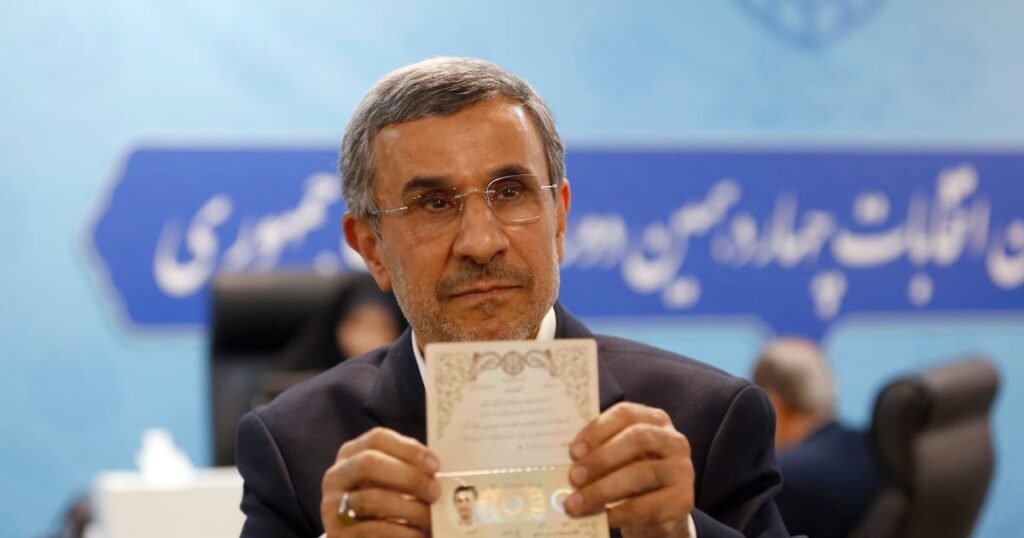Former Iranian President Mahmoud Ahmadinejad will run again in the June 28 presidential election, state media announced on Sunday.
In a video broadcast on state television, he was filmed registering his candidacy at Tehran's Interior Ministry and pledging to strengthen Iran's economy.
The election was announced after President Ebrahim Raisi was killed in a helicopter crash on May 19.
Foreign Minister Hussein Amirabdullahian and several other government officials were killed in the plane crash in northwestern Iran as their entourage was returning from the Azerbaijan border.
“My most important motivation is to focus on solving the economic problem,” Ahmadinejad said in a speech broadcast on state television.
Former parliament speaker Ali Larijani, who is seen as a moderate who aligns with reformist former President Hassan Rouhani, is also running.
The final list of candidates will be decided by the Guardian Council, which is appointed by Supreme Leader Ayatollah Ali Khamenei.
Massoud Zaribafan, who served as vice president under Ahmadinejad, also registered, along with eight others, including Tehran Mayor Alireza Zakhani and Vahid Haganian, a former commander of the Revolutionary Guards and a close aide to Khamenei.
Hardline candidate Zohreh Elahian has also announced her candidacy and, if approved by the council, would become the first woman to run for president.
The EU and Canada imposed sanctions on her over the crackdown on protesters in demonstrations following the death of Mahsa Amini in September 2022, in which hundreds were killed.
Both Larijani and Ahmadinejad were barred by the council from running in the last election, and Khamenei had said Ahmadinejad would split Iran in two.
The former president has criticized Khamenei in the past and called for “free elections.”
In the 2021 election, Raisi, who was seen as the successor to Khamenei as supreme leader, won, but the election was criticized as fraudulent.
The council is expected to announce the list of approved candidates on June 11.
The election comes just months after record-low voter turnout in parliamentary elections, when just 41% of eligible voters cast a ballot.
Voter apathy has been exacerbated by economic problems, U.S. sanctions and Tehran's crackdown on anti-regime protesters, including the introduction of strict laws against women who do not cover their heads in public.
Updated: June 2, 2024, 8:17 AM

